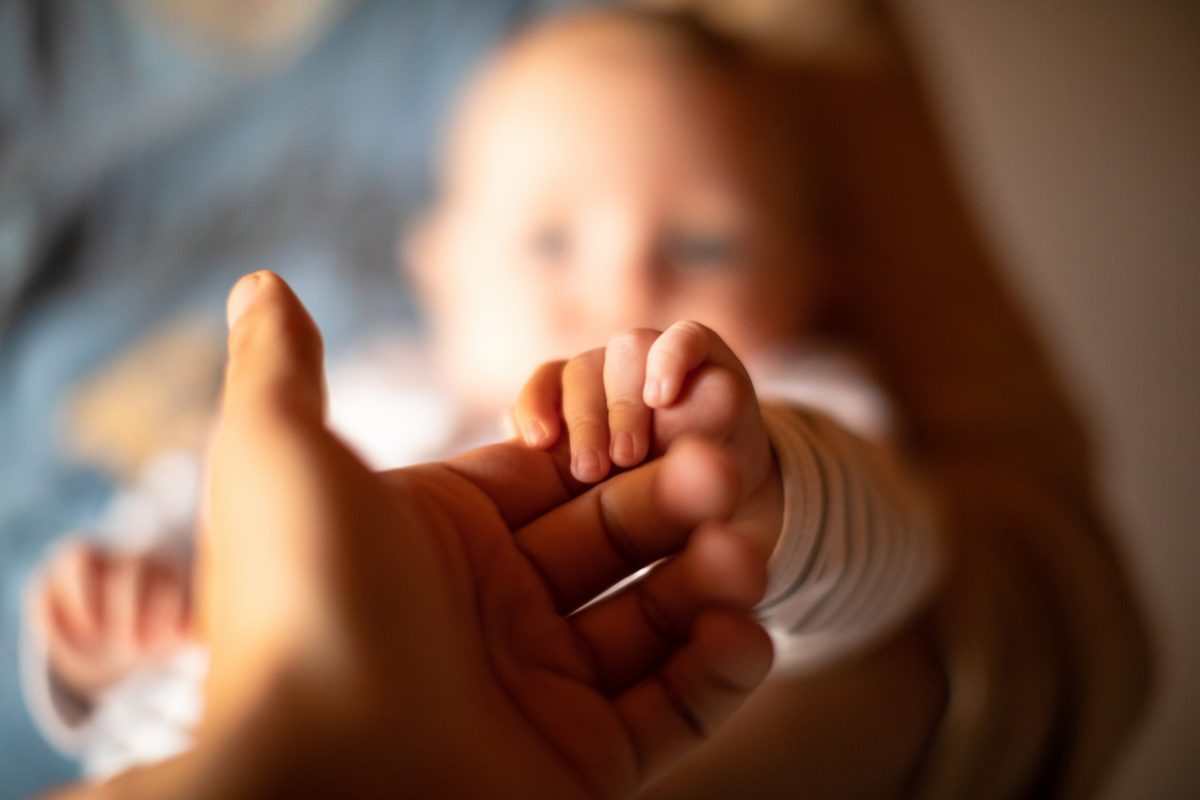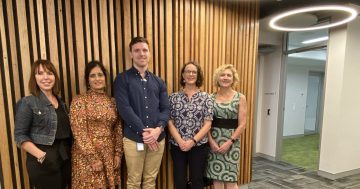
Mothers with borderline personality disorder can access a tailored therapy program to help them connect with their babies and learn how to regulate their emotions. Photo: iStock.
A new therapy program for mothers struggling with complex social and emotional difficulties has been extended to stop them from “drowning”.
The Mother-Infant Dialectical Behaviour Therapy Program (DBT) was piloted through Canberra Health Service’s Perinatal Infant Mental Health Consultation Service (PIMHCS) with 12 mothers who were diagnosed with borderline personality disorder or had enough clinical symptoms to be eligible.
It aims to give mothers the tools to manage and regulate their emotions to feel like they can be the parents they want to be.
Wendy* was one person who took part and said the experience had given her confidence in her abilities as a parent.
“My confidence was lacking – I felt like an imposter rather than a mother,” she said.
“The program made me feel like I was deserving of my children. It made me feel confidence in the role as a mother and I now have the capacity to meet their needs and grow as a parent.”
Dr Philip Keightley is one of the psychiatrists with the PIMHCS.
He said that borderline personality disorder differed from perinatal depression (PND) in that people were usually diagnosed in their teens, and those diagnosed experienced emotions so strongly and intensely that they often felt “out of control”.
“Having a baby can be particularly challenging when you have borderline personality disorder because you’re trying to help babies manage their emotions and big feelings while at the same time you’re trying to cope with your own big feelings,” Dr Keightley said.
The 24-week program consists of weekly two-hour group therapy sessions while the children are being cared for by YWCA volunteers, along with one-hour one-on-one sessions.
Mothers learn skills and strategies to improve their own emotional regulation and relationships with a specific focus on parenting.
Wendy said it had resulted in her not getting as emotionally dysregulated as she used to.
“The DBT content is my lifeboat. I get into my life vest, hop onto the boat and get to safety,” she said.
“My husband noticed a big change in me quite early on … he noticed that my approach to challenging situations was quite different and I don’t drown anymore.
“I used to drown in terrible shame and guilt, and now I do feel my emotions but I can identify them and sit in them – in that awareness I have the courage to ride the wave and manage things safely.”
The program only supports mothers with children under the age of two as this has been recognised as a crucial time in infant brain development in terms of learning about emotions and how to regulate them.
Dr Keightley said it was vital to have this type of early intervention so that children could grow up learning how to also appropriately cope with and express their feelings.
“There’s so much pressure and judgement around parenting; it’s very easy to be a guilty parent,” he said.
“A lot of the behaviours we teach [in the sessions] are around self-compassion, accepting things as they are and working on things that are achievable.
“[This way] you could be setting up babies for a lifetime of better mental health.”
The ACT 2023/24 Budget set aside $597,300 for this program to continue, with a new cohort to begin their sessions in May.
Mental Health Minister Emma Davidson said the results so far had been promising.
“The program helps mothers understand and better manage these challenges through strategies such as mindfulness, emotional regulation, distress tolerance and interpersonal effectiveness, to reduce and change behaviours that can be life-threatening, self-harming or negatively impact their quality of life,” she said.
“I look forward to seeing the difference this program makes for its participants and how it is best tailored and expanded to meet community need.”
It’s hoped as the program is expanded (and if funding is continued longer term) courses could also be offered to partners and carers.
* Name has been changed.
If this story has brought up issues for you, contact the PANDA National Helpline (Monday to Saturday) on 1300 726 306 or Lifeline on 13 11 14. In an emergency, call triple zero (000).













